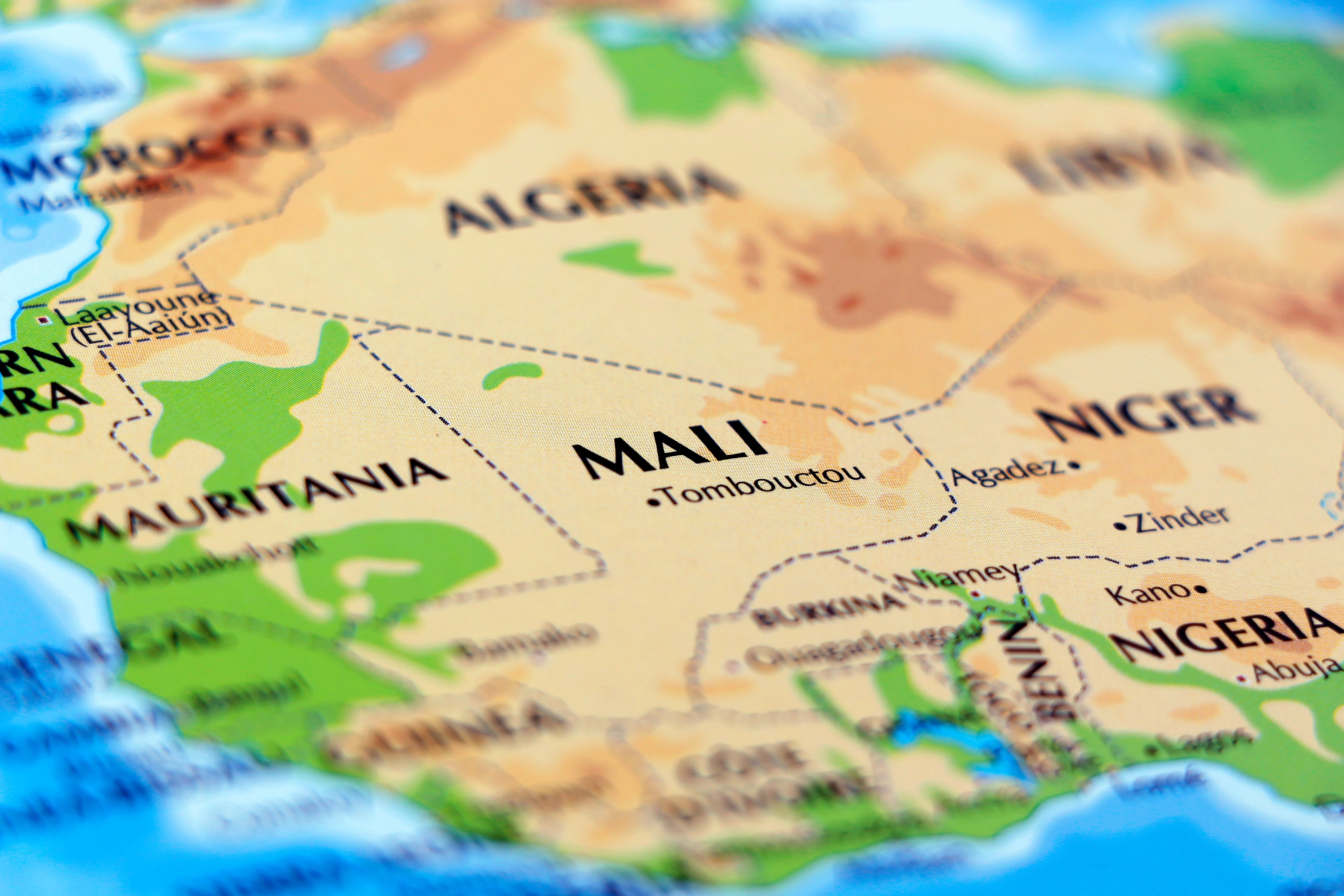Mali
Mali – what now? Impressions and Estimation

World map of Africa with close up focus in Mali
© ShutterstockA trip to the legendary country of Mali is causing frowns and worried looks. As the first of the coup-belt countries Mali has a bad reputation to defend and Western countries have difficulties in positioning themselves vis-à-vis this country ruled by a military junta.
The withdrawal of the Western military presence (MINUSMA and French troops, followed more recently by German troops) from the country briefly led to plans in Berlin to replace Mali, once a promising country, with Niger which has always been a complicated country. This proved to be a mistake after the coup in Niger at the latest.
The Sahel region is generally fragile and cannot be divided into better and worse countries. The region and in particular the civilian population there are dependent on external support. The gaps that have recently emerged (military, religious, economic) will be filled. If not from the West, then other actors will fill this newly created spaces.
Mali itself is in a contradictory situation: poverty, demographic development, energy crisis, populism and jihadist terror as well as an economic embargo and lack of foreign investment make Mali one of the poorest countries in the world. The country has a tradition of coups, not all of which are considered bad by the local population. The country has been experiencing civil war-like conditions for over ten years, which the Western powers have not been able to get under control - on the contrary. The recent expulsion of the dhihadist terrorists and the reclamation of parts of the north and the associated restoration of administration, schools, road construction, etc. are proving popular with large sections of the population, who above all yearn for security and peace. The current government is providing a certain degree of stability. Whether this happens with Wagner & Co is of secondary importance to most Malians.
Western dilemma: Western actors are confronted with a dilemma:
- the question of a complete withdrawal from Mali? - but to go where instead?
- Or adopting a critical wait-and-see attitude in the hope of better times. The latter would be initiated by the formation of a democratically legitimised government through free elections. And the peaceful departure of the current military leadership (President Assimi Goita & 5 colonels) from the government palace on the hill of power (colline du pouvoir) back to the barracks. Most observers on the ground - both local and international- assume that this will take place in 2024. It seems possible that Goita, who is very popular and has a certain reputation for not being corrupt, will stand for election and remain in office himself.
If one chooses the second option, that is a prerequisite:
- Uphold western demands for democracy, freedom, etc., but do not make them an exclusion criterion in view of the realities, especially since the government is striving for good governance
- To accept that other states and organisations (Turkey, India, China and Russia) are cooperating closely with the Malian military government and will continue to do so in the future
- To note that Malian emancipation efforts will continue with regard to the French presence and African organisations such as ECOWAS, UEMOA and the African Union, e.g. the newly founded Alliance of Sahel States (AES) with the coup-countries Niger, Mali and Burkina Faso.
Last but not least: Germany is regarded as an absolute favourite partner and is held in high estime. The high rate of visits by German politicians in 2023 has further emphasised this.
If these premises are accepted the presence and cooperation in the areas currently covered by the Friedrich Naumann Foundation (combating the causes of flight as a means against migration by empowering and educating women and youth in the areas of entrepreneurship and start-up initiatives, strengthening political and civil society engagement in the areas of peace building, human rights, etc.) and other German organisations will continue to be possible in Bamako and in the medium term in the rural areas.
Cooperation with this Mali is currently possible and would make sense.
